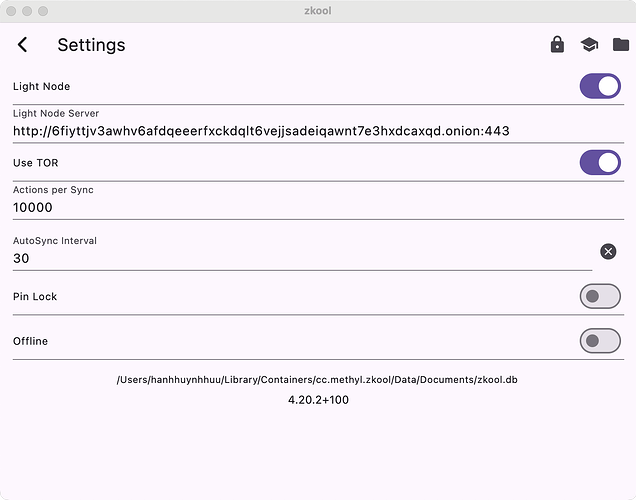Zashi just expanded its Tor network integration, and it’s yet another quiet game-changer for the privacy-conscious Zcash users. Previously, Tor support in Zashi was limited to fetching ZEC-USD exchange rates, which shielded user IP addresses from exchange servers and prevented metadata leakage. With this update, the wallet’s built-in Tor client can now be used to:
- Submit ZEC transactions
- Fetch transaction data
- Connect to third-party APIs (e.g. NEAR and Maya coming soon)
- Fetch ZEC-USD exchange rates
Zcash is already the industry leader in private transactions. Zashi’s expanded Tor capabilities place it one more step ahead of the pack. By routing wallet activity through Tor, Zashi adds network-level privacy on top of Zcash’s best-in-class cryptographic protections.
What is Tor?
Tor is a volunteer-operated privacy network that encrypts and routes your internet traffic through multiple relays, making it much harder to trace your online activity back to you.
Zashi’s Tor integration is built on Arti, a Rust-based Tor implementation designed to make Tor faster, more reliable, and easier to integrate into applications like Zashi. Developed by the Tor Project with funding from Zcash Community Grants, Arti has been a long-standing strategic priority for the Zcash community.
Why This Matters
Wallets use Zcash lightwallet servers to fetch data from the chain and to submit transactions to the network. Without Tor, such requests can be linked to your IP address, potentially revealing patterns of wallet usage. Routing these queries through Tor breaks that link, reducing metadata leakage and strengthening privacy for shielded ZEC usage. We also intend to use Tor where possible for future integrations.
Watch ECC’s Jack Grigg, one of the original developers of the Zcash protocol, explain the significance of the Tor feature.
Notes
- Beta Feature: Tor protection is a beta feature and may affect wallet performance, which is why we’ll be monitoring all user feedback very closely.
- Controls: This feature can be managed in Zashi’s Advanced Settings. If performance issues are detected, Zashi will prompt you to disable Tor.
- Regional Restrictions: Tor is blocked in some countries. Make sure its use is permitted in your region. If it is, we strongly recommend enabling it for the extra layer of protection for your private payments.
Protecting your wallet activity is not just about individual transactions; it’s about personal autonomy, privacy rights, financial sovereignty, and much broader societal implications. While the term “privacy” is being watered down and co-opted by corporations built on harvesting user data, our goal is different: true privacy. For us, it’s not a buzzword or a marketing gimmick; it’s a principle that drives every decision, down to the smallest technical detail. The latest Zashi update embodies that principle.
Shields up.


